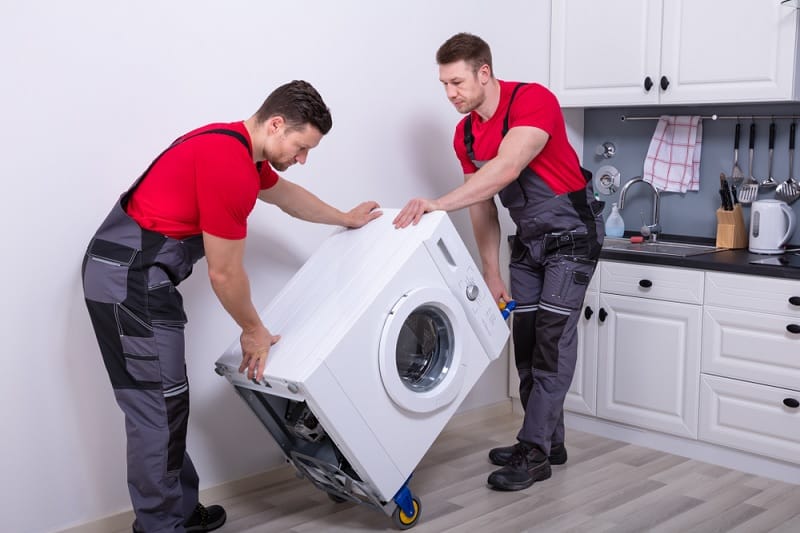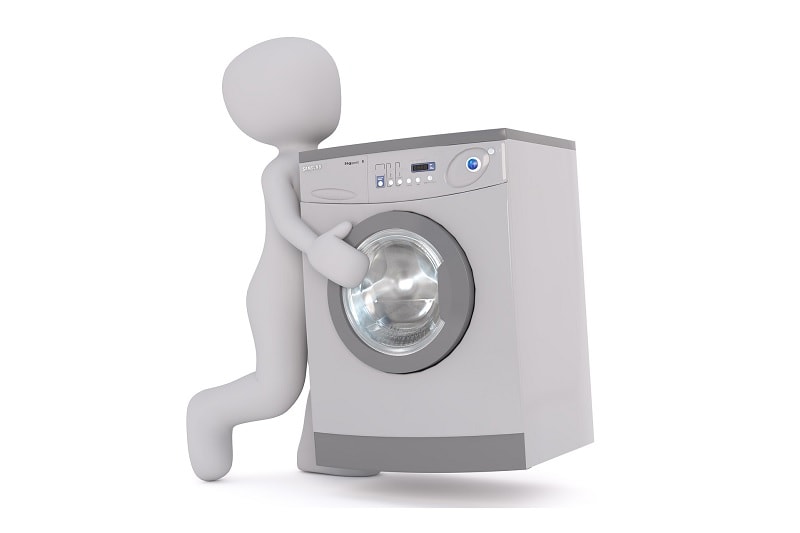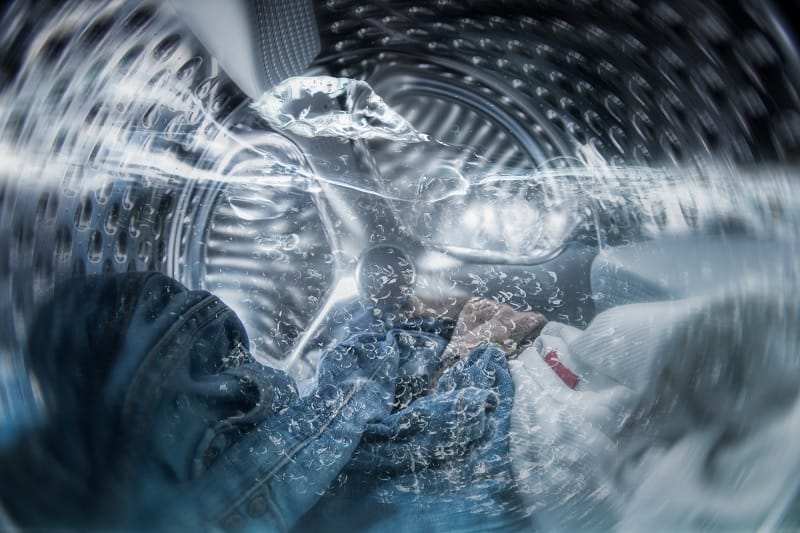If you’re taking your washing machine with you while moving house or looking to buy a new washing machine, you’ll need to think about its size and weight.
With around 14% of the UK living in flats and some people’s houses having a kitchen on the first floor, a lighter weight option may be a good consideration.
How Much Does a Washing Machine Weigh in KG?
The average washing machine usually weighs around 60-90 kg.
The most popular models typically weigh about 70 kg.
Some washers can actually exceed 110 kg depending on the drum capacity of the machine and whether or not they have concrete in them.
When you buy a washing machine, you will see numbers such as 7 kg, 8 kg and 9 kg. However, this refers the load capacity (the weight of dry clothes you can put in the washing machine) rather than the weight of the washing machine itself.
Keep reading to find out how heavy some of the most popular models are!
Why Do Washing Machines Contain Concrete?
If you’ve ever tried to move a washing machine, you’ll probably have noticed how heavy it is. A concrete block is used in a washing machine to help stabilise it when the spin cycle is running.
Without this concrete weight, which weighs around 25 kg, your washing machine could take itself out from under your bench and wobble its way down the front path!
A lot of movement occurs inside the machine during a wash cycle, so it is essential for a washing machine to be as heavy as it is.
But not all washing machines come with their own environmentally unfriendly concrete block any more—there has been a development!
Machines may soon start to be fitted with a new, lighter stabiliser. Instead of concrete, a hollow plastic counter-weight is in the top of the machine and this gets filled with water once the washer has been delivered.
This drastically reduces how heavy the machine is to transport, so not only will it save the delivery drivers’ backs, but it will also help to cut down on CO2 emissions which are produced during the production of concrete as well as the extra fuel that would have been used to deliver heavier stock!
Moving House? – How to Move a Washing Machine by Yourself
If you have ever had to move your washing machine, you will know it is pretty tough… dragging it along the floor can leave unsightly marks and lifting it incorrectly could cause injury to your back, arms or knees… so what should you do?
Tips on moving a washing machine:
- Unplug the machine – It is important that there is nothing inside the drum and that you make sure to knock off your water supply before removing pipes and unplugging it from the wall.
- Be safe – Wrap the loose cords and hoses up and tape them in place with parcel tape or masking tape (you could just tie them if you have no tape) so no one can trip on them.
- Protect the machine – Cover the washing machine with blankets or bubble wrap so it doesn’t get bashed or damaged on its travels.
- Have the correct moving equipment – Using a dolly or something similar is the safest way to transport a heavy appliance as it takes a lot of the weight and balances it more evenly. This also means that you can wheel the machine onto the moving van!
- Get a professional to do it – Someone who does removals for a living will be much better versed in the art of moving washing machines from homes and into vans (and back out again), so if you have any doubts, call a local, reputable removal company.

Benefits of Lighter Washing Mhoovachines
As we mentioned before, reducing the weight of washing machines can decrease the amount of fuel used by trucks that deliver this heavy stock to stores around the country.
So, by choosing a lighter model, you could be helping to save fuel and reduce emissions.
Of course, they’re also easier to move around and more convenient when you want to move house.
Let’s hope that the development of a concrete-free washing machine hurries up so we can start reducing CO2 emissions and reduce fuel consumption with lighter weight machines!
If you’re looking to buy a new washing machine, check out our top recommendations here.

In The Wash is your guide to the best laundry and cleaning products, tips and tricks. Our mission is to solve the UK’s cleaning and laundry dilemmas!






